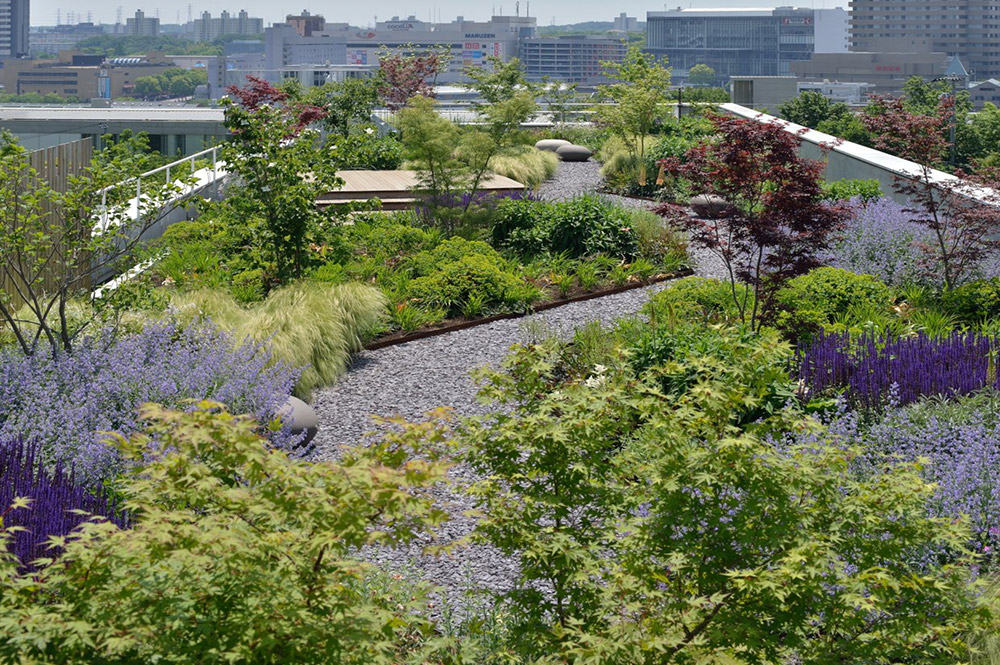



Cities are on the frontline of the climate crisis. Urban areas are suffering from increasingly lethal summer heat as sunlight heats up the hard surfaces of asphalt parking lots, roofs and street networks, creating higher peak temperatures. These dark, impervious surfaces not only absorb and emit heat, making cities 9˚F warmer in the summer on average, an effect commonly referred to as the urban heat island. But changing weather patterns increase severe rain events leading to flooding, mold growth, and water pollution. Too often, low-income communities and communities of color bear the brunt of the health and economic costs of rising temperatures.
Recognizing this phenomenon in cities worldwide, the Smart Surfaces Coalition was formed to advance rapid and cost-effective global adoption of replacing these heat-absorbing surfaces with “smart surfaces.” Smart surfaces include cool roofs, green roofs, reflective roads and parking, urban trees, solar PV, permeable sidewalks, and parking designed with bioswales to manage stormwater.
In a new report, “Cooling Cities, Slowing Climate Change and Enhancing Equity: Costs and Benefits of Smart Surfaces Adoption for Baltimore,” the Smart Surfaces Coalition studies the numerous economic, employment, health, and environmental benefits of adopting smart surfaces. With research funding from the Abell Foundation, the study was conducted with the guidance of multiple Baltimore city agencies, officials, local non-profits, and neighborhood groups, as well as leading experts and partner organizations within the Smart Surfaces Coalition.
To explore how changing surface types could lower temperatures and provide benefits in Baltimore City, the Coalition built a customized online analytic engine to model various targets and timeframes, and then tested, compared and optimized smart surfaces adoption scenarios. The analysis also includes cost benefit evaluation of three Baltimore neighborhoods where a high proportion of residents have low incomes: Madison East End, Brooklyn Curtis Bay, and Cherry Hill. The report concludes that investment in smart surfaces can sharply cut temperatures, provide long-term savings, and improve the quality of life in neighborhoods by making them cooler, greener, less polluted, and more shaded by trees.
Benefits to Baltimore of broad adoption of Smart Surfaces include: